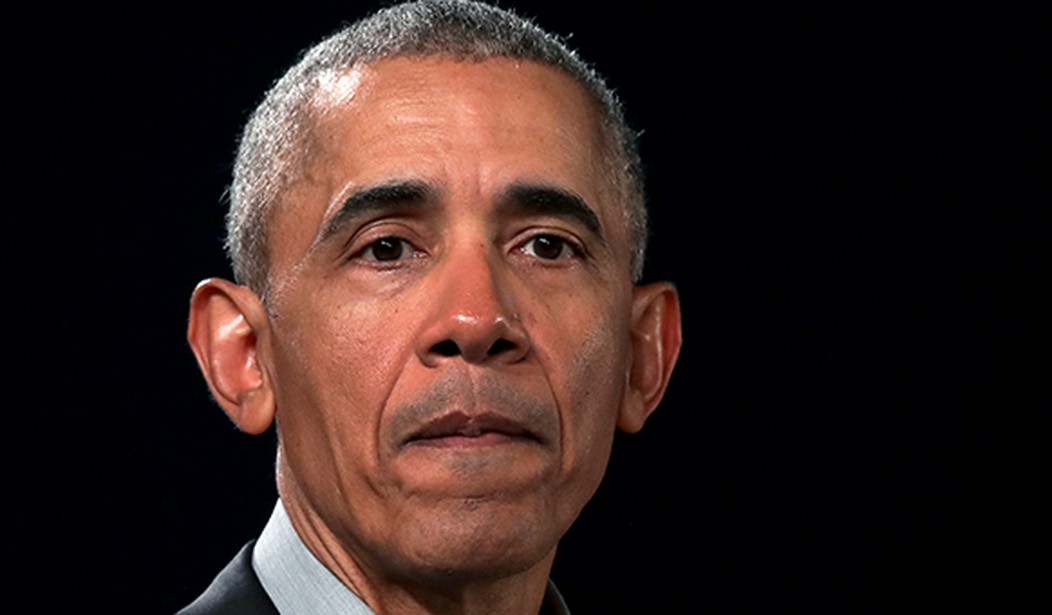Well, Christopher Steele, Department of Justice investigators interviewed the ex-MI6 spy who compiled the infamous Trump dossier. That document, a Clinton-funded piece of political opposition research, was one of the key pieces of so-called evidence that was used to fan the flames of the Russian collusion myth. The dossier’s credibility was immediately questioned, as a large portion of the information in it couldn’t be verified. In fact, most of it remains unverified. It doesn’t matter. The report filed by Special Counsel Robert Mueller debunked all of it. Trump and his campaign team didn’t collude with the Russians. There was no conspiracy.
And yet, it was cited as credible evidence in securing a FISA spy warrant against Carter Page, Trump’s former foreign policy adviser for the campaign. Was this document even verified? From the looks of it, that doesn’t appear to be the case. There were glaring errors in it, some of which could are easily been debunked with a simple Google search. If these sources were doling out inaccuracies, what else were they wrong about? Those running the Obama DOJ never questioned that apparently. To make matters worse, James Baker, the FBI’s general counsel at the time, knew their decisions would be controversial and second-guessed. Also, in 2017, FBI agents interviewed one of Steele’s sources and the conclusion was not really a shocker to those who felt this whole narrative was trash: the information relayed was not reliable.
Steele had previously refused to cooperate, but only recently agreed to be interviewed by investigators with the DOJ inspector general’s office who are investigating the alleged FISA abuses during the 2016 campaign. This certainly put a delay on whatever deadline this office put on the report, which has some Democrats and former Obama intelligence chiefs a bit nervous and for good reason (via NYT):
LOL at anyone who pretended to be an intelligence expert while getting duped by conman Christopher Steele. https://t.co/uDBxVxiYFM
— Sean Davis (@seanmdav) July 9, 2019
This would at least explain the long IG delay. The story weirdly suggests delay is because IG wanted Steele info. Would seem equally likely that IG is investigating Steele's very credibility.
— Kimberley Strassel (@KimStrassel) July 9, 2019
https://t.co/XGv794MKpl
Recommended
Inside a London office building in early June, three investigators for the Justice Department’s inspector general took a crucial step toward clearing the political fallout from the Russia investigation: They spent two days interviewing Christopher Steele, the former British spy whose now-infamous dossier of purported links between Trump associates and Russia ended up in the hands of the F.B.I. ahead of the 2016 election.
The investigators pored over Mr. Steele’s old memos and his contemporaneous notes from meetings with F.B.I. agents in the fall of 2016, according to a person familiar with the investigation. They asked Mr. Steele to explain in detail how he had validated his sources inside Russia, how he communicated with them, and how he decided which of their claims to include in his reports. They spoke at length about Mr. Steele’s work with the F.B.I. on other Russia-related investigations and his contacts with a senior Justice Department official.
The interview was a key step in the investigation by the inspector general, Michael E. Horowitz, into the facts underlying a bitter partisan feud: Did F.B.I. officials do anything wrong in 2016 when they sought to understand the Trump campaign’s links to Russia — including how they used information from Mr. Steele?
[…]
Investigators working for Mr. Horowitz have asked witnesses about whether the F.B.I. properly opened the Russia investigation and how the bureau handled a pair of informants, including Mr. Steele, whose work was financed by Mrs. Clinton’s presidential campaign and the Democratic National Committee.
[…]
Mr. Horowitz is expected to answer whether Mr. Steele’s information played a role in opening the Russia investigation, code-named Crossfire Hurricane. Former law enforcement officials have insisted it did not, saying they opened the inquiry in July 2016. The Steele dossier did not reach the relevant agents until Sept. 19, 2016, nearly two months later, people familiar with the matter have said.
[…]
Investigators flagged, in a lengthy footnote in the wiretap application, that Mr. Steele’s research was funded by someone “likely looking for information that could be used to discredit” Mr. Trump’s campaign. They did not specifically identify the Clinton campaign and the Democratic National Committee. Mr. Trump’s allies have called it an abuse to use political opposition research in a wiretap application, especially without naming its funders.
[...]
Mr. Horowitz is also scrutinizing a related issue: whether law-enforcement officials adequately took into account new information as they sought to renew the wiretap. It is not clear, for example, when the F.B.I. figured out for certain that the Democratic Party and the Clinton campaign had funded Mr. Steele’s research; investigators never updated the language describing his research in their three renewal applications.
Moreover, by January 2017, F.B.I. agents had tracked down and interviewed one of Mr. Steele’s main sources, a Russian speaker from a former Soviet republic who had spent time in the West, according to a Justice Department document obtained by The New York Times and three people familiar with the events. After questioning him, F.B.I. officials came to suspect that the man might have added his own interpretations to reports from his own sources that he passed on to Mr. Steele, calling into question the reliability of the information.
[…]
In all, the Page wiretap application has likely become among the most scrutinized wiretap applications in history. James Baker, the F.B.I. general counsel at the time, who also agreed to cooperate with the inspector general, would not comment on the substance of his interactions with Mr. Horowitz’s inquiry but has said in other forums that F.B.I. officials knew that everything they did would be second-guessed.
During a congressional deposition last fall, Representative Jim Jordan, Republican of Ohio and a Trump ally, asked Mr. Baker why he took the unusual step of personally reviewing the original warrant application.
“I anticipated being — sitting here in rooms like this down the road, I seriously did, and I knew that it was — I knew that it was sensitive,” Mr. Baker replied, according to a transcript. “I knew that it would be controversial.”
On a side note, this whole sordid affair has roped in the State Department, who Steele met with prior to the FBI issuing that FISA warrant for Carter Page and they noted quite clearly that Steele’s information could be partisan and politically motivated. It was. There have also been some rather glaring omissions from the Mueller report on Carter Page and Ukrainian businessman Konstantin Kilimnik, who was alleged to be part of Russian intelligence. Page was a source for the FBI, the State Department, and the CIA. Kilimnik was a “sensitive intelligence source” for the State Department as well under Obama, visiting the United States twice in 2016. He met with U.S. officials and him being there at the time showed he wasn’t flagged as a foreign intelligence threat. The Hill’s John Solomon has reported extensively on the Trump-Russia collusion hysteria. And this FISA nonsense with Carter Page is not only part of that, but a very disturbing reminder of what the federal government can do it own citizens with impunity.
Oh, and even some in British intelligence questioned Steele's dossier. It all forms the basis for the not-so-crazy-allegation that this was a political hit job against Donald Trump.
























Join the conversation as a VIP Member